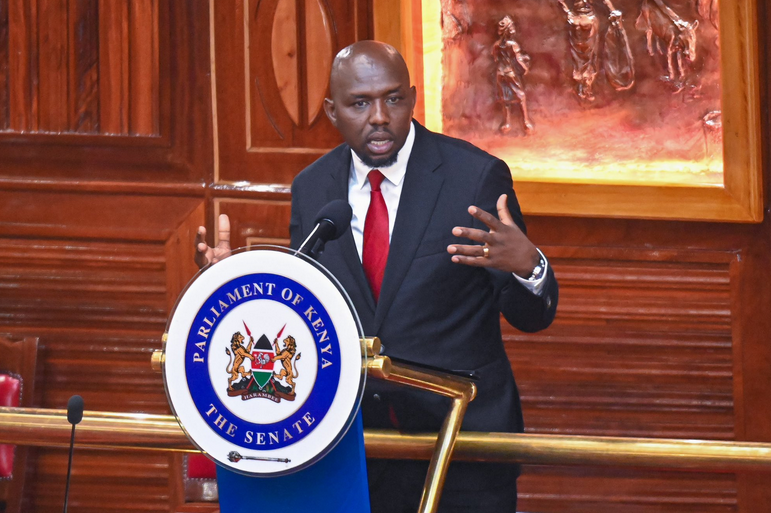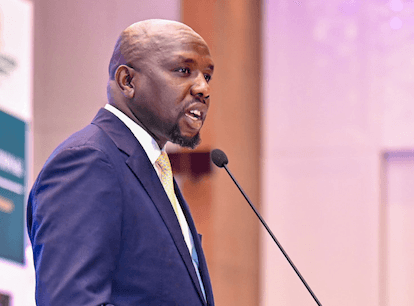

Interior Cabinet Secretary Kipchumba Murkomen has confirmed that no formal investigations are underway into an incident involving Pastor James Ng’ang’a of Neno Evangelism Centre.
The matter concerns a video that circulated in April 2025, allegedly showing the pastor slapping a congregant during a live church service.
Appearing before the Senate on Wednesday in response to a question from Kisumu Senator Tom Ojienda, Murkomen said the incident had not been reported to any police station, including the Parliament Police Station, and therefore no legal action had been initiated.
“It has been established that the alleged incident occurred during a night vigil prayer (Kesha) on the night of April 11, 2025. The incident was neither reported at the nearest police station nor at any other station. Consequently, no investigations are currently underway, as no formal complaint has been lodged,” Murkomen said.
The CS’s remarks come amid growing public concern over the conduct of some religious leaders and institutions.
Senator Ojienda had sought clarification on existing and proposed legal frameworks to regulate such conduct while safeguarding the constitutional right to freedom of religion.
Murkomen outlined several legal instruments that already govern religious organisations in Kenya.
He cited the Societies Act (Cap 108), which regulates the registration and operation of religious institutions, and the Penal Code, which provides for prosecution in cases involving offences such as assault, coercion, or other criminal acts.
He further referred to Article 32 of the Constitution, which guarantees freedom of religion, belief, and conscience, noting that this right, like all others, may be subject to reasonable limitations in the interests of public safety, order, and morality.
“Religious leaders who engage in physical abuse or apply coercive tactics against congregants can be prosecuted under these provisions, offering legal protection and recourse for victims of such conduct,” Murkomen stated.
Murkomen also highlighted ongoing efforts to strengthen oversight and accountability within the religious sector.
These include self-regulation frameworks proposed by the National Council of Churches of Kenya (NCCK), as well as targeted legislation to address abuse within religious institutions.
He referenced the proposed “Do No Harm” Act, currently under discussion, which seeks to prevent misuse of religious freedom protections, and the Religious Organizations Bill, 2024, which proposes governance measures such as financial transparency, registration oversight, and mechanisms to counter radicalisation and harmful practices.
“The bill aims to empower religious leaders with the tools and support needed to actively counter radicalisation and violent extremism within their communities,” Murkomen said.
On the protection of worshippers and whistle-blowers, Murkomen affirmed that constitutional safeguards under the Bill of Rights, including equality before the law, freedom of expression, access to justice, and the right to privacy, apply to all Kenyans.
He further cited the Whistleblower Protection Act, which prohibits retaliation and ensures safety for individuals reporting abuse or misconduct.
“The government is actively collaborating with religious organisations and civil society groups to develop safe and confidential reporting mechanisms, train religious leaders to respond to abuse, and promote advocacy initiatives that encourage victims and witnesses to come forward without fear of reprisal,” Murkomen said.





















